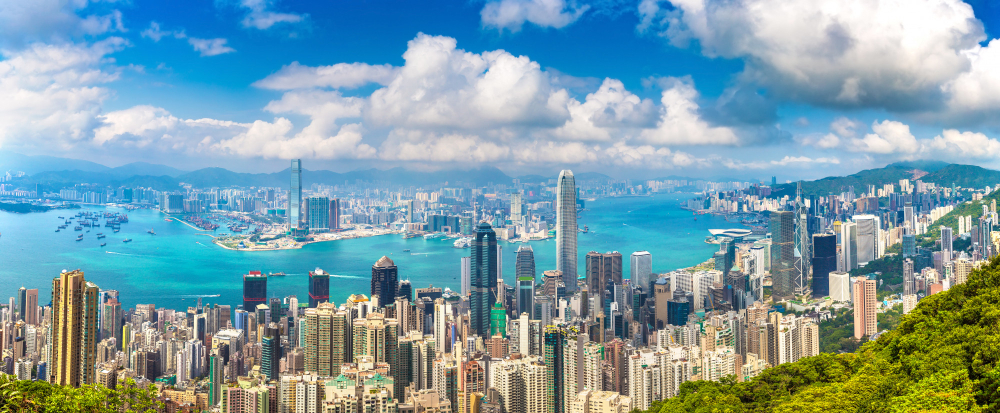
Hong Kong is rapidly emerging as a trusted destination for medical tourism in Asia, offering world-class healthcare services grounded in British medical traditions and enhanced by cutting-edge technologies. With its strategic location near mainland China and Southeast Asia, Hong Kong attracts medical travelers from around the world—especially those seeking efficient, high-quality care in a cosmopolitan and culturally diverse environment.
The region is home to both public and private medical institutions, many of which are internationally accredited and staffed by English-speaking professionals trained in the UK, US, and Australia. From specialist consultations to advanced surgical procedures, patients benefit from short wait times, transparent pricing, and personalized service in a highly urban and well-organized healthcare system.
Hong Kong excels in diagnostics, oncology, cardiology, and minimally invasive surgeries. It is also a top choice for executive health check-ups, cosmetic dermatology, fertility treatments (including IVF), and ophthalmology procedures such as LASIK. Private hospitals in Hong Kong are known for their focus on innovation—offering robotic surgery, 3D imaging, and AI-assisted diagnostics as part of routine care.
What sets Hong Kong apart is its stringent medical governance and clinical excellence. Medical professionals follow international guidelines, and the region's hospitals often collaborate with global research institutions. This guarantees a standard of care that rivals top facilities in the U.S. or Europe, but in a geographically closer and culturally familiar setting for Asian patients.
Hong Kong is easily accessible via Hong Kong International Airport (HKG), a major global hub with direct flights from major cities across Asia, Europe, and the Americas. Most travelers benefit from a visa-free stay ranging from 7 to 180 days, depending on nationality, which makes scheduling medical visits relatively simple.
Once in the city, patients can expect high levels of comfort, safety, and service. Hospitals offer concierge services including airport pickup, hotel coordination, translation support, and medical liaisons to assist with each stage of care. English is widely spoken, and healthcare providers are well-versed in accommodating dietary, religious, and cultural preferences—ranging from halal meals to private nursing care.
Hong Kong’s compact urban design means top hospitals, luxury accommodations, and cultural sites are all within easy reach, allowing for a streamlined and comfortable recovery experience.
Hong Kong's healthcare sector is tightly regulated by the Department of Health and the Medical Council of Hong Kong. The city maintains exceptionally high clinical and ethical standards, and its private hospitals often hold international accreditations such as Joint Commission International (JCI) certification. Patients can expect robust infection control, high hygiene standards, digital medical records, and clear consent and privacy policies.
Legal frameworks offer strong protection to patients, including avenues for complaints and recourse in cases of malpractice. Post-procedure care is taken seriously, with most hospitals offering structured recovery plans, rehabilitation, and virtual follow-up consultations. Medical travelers can also opt for extended recovery at wellness hotels or integrated medical-spa facilities within the city.
Hong Kong presents a compelling option for medical tourists who value clinical precision, rapid access to care, and cultural ease in a modern, globally connected city. Its world-class hospitals, regulatory integrity, and patient-centered services make it a hub of healthcare excellence in Asia. For travelers seeking quality treatment without the long waits or logistical challenges of other countries, Hong Kong offers peace of mind with a touch of luxury.
1. Why choose Hong Kong for medical tourism?
Hong Kong offers world-class care, short wait times, and English-speaking doctors.
2. What types of treatments are popular in Hong Kong?
Fertility, cardiology, cancer care, eye surgeries, and health check-ups are top choices.
3. Are hospitals in Hong Kong internationally accredited?
Yes, many private hospitals are JCI-accredited and meet global standards.
4. Do doctors in Hong Kong speak English?
Yes, most medical staff in private hospitals speak fluent English.
5. Is it easy to travel to Hong Kong for treatment?
Yes, there are direct international flights and many nationalities can enter visa-free.
6. How much does medical treatment cost in Hong Kong?
Costs are lower than in Western countries but higher than in some Asian destinations.
7. Can hospitals accommodate special dietary or religious needs?
Yes, hospitals offer halal meals, private care, and other cultural accommodations.
8. Is Hong Kong safe for medical travel?
Yes, the city is clean, modern, and has strict healthcare regulations.
9. How is follow-up care handled?
Many hospitals provide recovery plans, virtual check-ins, and rehab services.
10. What currency is used in Hong Kong?
The currency is the Hong Kong Dollar (HKD).
11. What is the time zone in Hong Kong?
Hong Kong follows GMT+8.
12. What language is commonly spoken in hospitals?
Cantonese and English are widely used, especially in private healthcare.